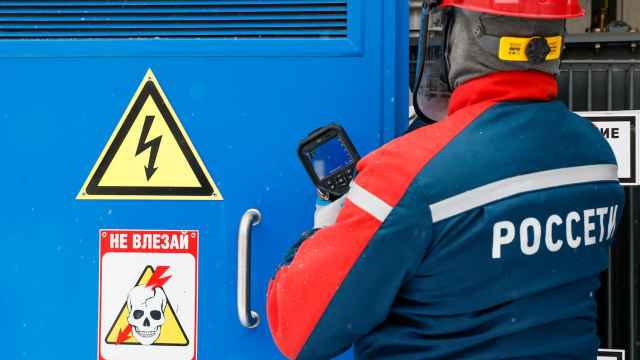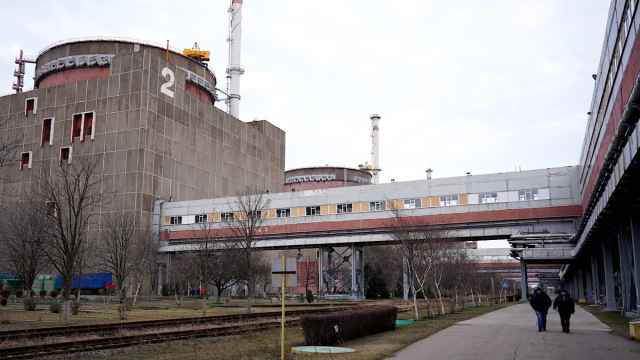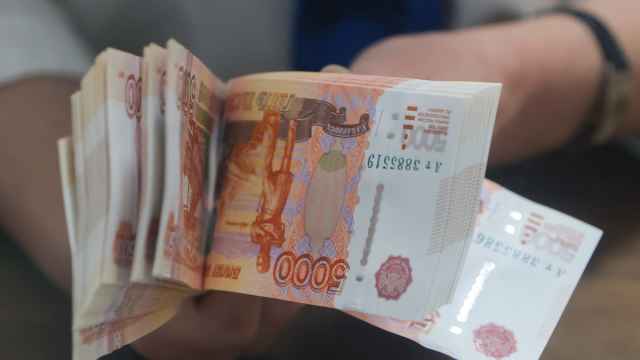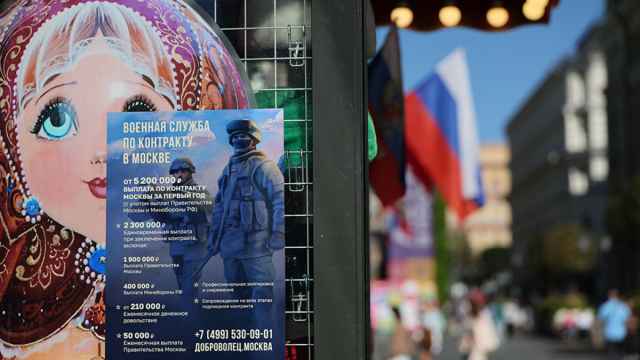Prime Minister Vladimir Putin on Tuesday ordered the government to complete the paperwork for the construction of the Vostochny spaceport as soon as possible so that work begins this year as planned.
"We are talking about a new, big national project," he told a weekly Presidium meeting. "Construction must begin precisely on schedule."
To be built at an estimated cost of at least 80.5 billion rubles ($2.7 billion), the spaceport is designed to ease the country’s dependence on the Soviet-era Baikonur launch site, located in the wind-swept steppe of neighboring Kazakhstan and which Russia is leasing through 2050. Joint launches from France's Kuru site in Guyana will begin sometime in the first half of this year, but the growing amount of business justifies a new national spaceport, Putin said.
The Prime Minister visited Vostochny, located in the middle of the Siberian taiga near the Chinese border, in August, during his memorable ride throughout the region in a yellow Lada.
As a cost-saving measure, unlike Baikonur, Vostochny will not be built with defensive military infrastructure to guard against possible attack, Federal Space Agency chief Anatoly Perminov said.
"There's no need to bury it in the ground and build defensive installations," he said at a news conference after the Presidium session. "We are not preparing for war."
Russia plans to send the first satellites and cargo into space from Vostochny by 2016, Perminov said. Manned flights are scheduled to begin only by 2019. Perminov said manned launches will only be allowed after 15 successful launches of cargo spacecraft from the same site, which takes about three years.
The first phase of construction will require 24.5 billion rubles in federal spending over the next three years, and will cover the launch site and a nearby residential compound — complete with schools, kindergartens and clinics. The Federal Space Agency wants the government to allocate another 56 billion rubles in 2014 and 2015, Perminov said.
By 2020 Vostochny will provide for 45 percent of the nation’s space launches, Perminov said in August. Baikonur will serve 11 percent, down from 65 percent now, while the northern Plesetsk spaceport will account for 44 percent.
There are 21 spaceports worldwide, owed by 11 countries, including Russia — which in 2009 claimed 40 percent of the highly competitive market for space launches. But such countries as China, South Korea, Indonesia and Brazil are building more of them, according to the government.
In other Presidium news, First Deputy Prime Minister Viktor Zubkov said the government was looking at a harvest of at least 85 million metric tons of grain this year — enough to resume exports. Russia, the fourth-largest grain exporter, banned exports in August after a severe drought destroyed crops across much of the country. According to weather forecasters, farmers can expect to collect up to 45 million tons of winter grain and up to 42 million tons of spring-sown grain, Zubkov said.
The U.S. government is seeking to extend its contract with Russia for launches to the International Space Station beyond 2013, Perminov said Tuesday.
(Bloomberg)
A Message from The Moscow Times:
Dear readers,
We are facing unprecedented challenges. Russia's Prosecutor General's Office has designated The Moscow Times as an "undesirable" organization, criminalizing our work and putting our staff at risk of prosecution. This follows our earlier unjust labeling as a "foreign agent."
These actions are direct attempts to silence independent journalism in Russia. The authorities claim our work "discredits the decisions of the Russian leadership." We see things differently: we strive to provide accurate, unbiased reporting on Russia.
We, the journalists of The Moscow Times, refuse to be silenced. But to continue our work, we need your help.
Your support, no matter how small, makes a world of difference. If you can, please support us monthly starting from just $2. It's quick to set up, and every contribution makes a significant impact.
By supporting The Moscow Times, you're defending open, independent journalism in the face of repression. Thank you for standing with us.
Remind me later.





